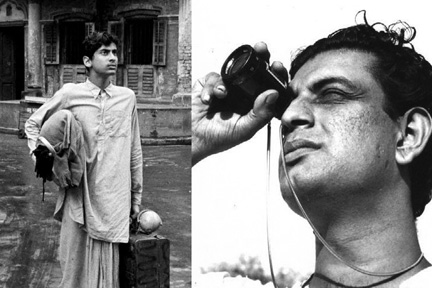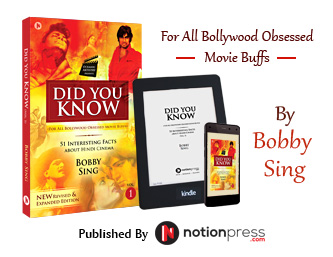
Indian Cinema has a distinctive edge over the world cinema in terms of its range of languages. In simple words, where every country makes movies in its official language representing its region, culture and people, Indian cinema includes films made in over 15 regional languages (including Hindi), proudly representing the secular and cultural heritage of the country.
However, such a huge repertoire of films made in different Indian languages also remained the reason for their limited reach and lack of awareness among the citizens during the last century. We couldn’t develop a culture of releasing the regional hits in dubbed form or with English subtitles in theatres and therefore a big percentage of the population always remained unaware of the cinematic gems being made in their own country (living in the awe of widely visible Hindi Cinema).
Forming a tradition, the National Awards used to inform the public about the latest worthy creations in the regional languages, and they also aired the awarded films on Doordarshan’s National channel with English subtitles. Unfortunately, the enlightening practice got interrupted sometime around the late ‘90s and the situation continued in the new millennium.
Thankfully, the scenario changed with the success of Bahubali (2015) along with Youtube and OTT platforms getting into the business in the last decade. The Youtube explosion brought forward a sea of regional cinema dubbed in Hindi and other languages and the OTT portals are now regularly releasing new films of all Indian languages in dubbed forms or with English subtitles. Sadly, a big number of these movies are poorly dubbed (by third parties instead of the makers) hampering their overall impact, but they are still being watched and appreciated by millions of viewers in the country and the numbers are really astonishing. This also presents the conclusion that the preference to watch dubbed films is much higher than watching the original language versions crossing over the one-inch barrier of subtitles.
In short, movies made in Indian regional languages are finally getting their deserving due and the viewers are now widely accepting the fact that Indian Cinema simply doesn’t mean Hindi films or Bollywood.
Having said that, another important fact related to this important breakthrough is that the present world of dubbed or subtitled versions focuses only on the recent hits or new releases, completely ignoring the classics of our past. So, where extra efforts are being made preparing dubbed or subtitled versions of the fresh releases, nobody is working to bring forward all the classics of our Indian regional language cinema created by the renowned maestros. For instance, forget the dubbed versions, even the English subtitled prints of many significant, award-winning films are extremely difficult to find online including the works of Mrinal Sen, Ritwik Ghatak, Adoor Gopalakrishnan, Jabbar Patel, Buddhadeb Dasgupta, and more.
Sharing a personal experience - had been searching for a rare, Bengali psychological thriller Megh (1961) directed by Utpal Dutt with English Subtitles. But when I finally found it uploaded at a reputed portal, then the disappointment continued as it was not even having complete subtitles throughout the duration. No doubt the portal didn’t even care, remaining more interested in quantity instead of quality.
Breaking this typical pattern, recently Nitin Neera Chandra, a national award-winning director, started a personal movement of dubbing Ray’s Apu Trilogy in the Maithili language, to be made available as ‘free to watch’ on his portal ‘Bejod’. Regarding the unusual choice of language, he informed that the cultural background of Mithila and its socio-economic condition is quite similar to Ray’s Bengal of that specific period. In fact, Darbhanga, which is considered the capital of the Mithila Region, is said to be “Dwar to Banga”, meaning Gateway to Bengal.
Besides, Maithili is the closest language that can justify the dub without changing the context of the characters, their set-up, and the narrative, as the problems faced by the people are not any different in the two regions.
The writer-director and his team have already released the first two parts of Apu Trilogy at the portal, and the third part is scheduled to be released in April. Post the trilogy, Nitin plans to dub Ray’s Jalsaghar (1958) in Bhojpuri and then will decide further after looking into the other monumental works, now available in the public domain.
So, when the authorities and the present exhibition system is least interested in reviving the rich classics of our past, directors like Nitin give us hope and the audience response to such efforts proves they are eagerly waiting to witness these classics in responsibly dubbed forms or with subtitles as originally conceived by their makers. Hope the message reaches the ministry and they officially initiate some immediate projects to revive our classics from the past made in different Indian languages, making them available for the present and future generations.
Cheers!
Bobby Sing
bobbytalkscinema.com
NOTE : The article was first published in THE FREE PRESS JOURNAL Newspaper (Mumbai Edition) on 5th April 2021.
----------
 For more such interesting articles on lesser known facts on Hindi Cinema, do try DID YOU KNOW
For more such interesting articles on lesser known facts on Hindi Cinema, do try DID YOU KNOW Series by
Bobby Sing available in both
Book and
E-book form
.
Also available
at Notionpress and Flipkart stores (in India)
The book is now also available in Hindi titled ITNA TO YAAD HAI MUJHE published by Prabhat Prakashan
Available at all leading portals online.


 For more such interesting articles on lesser known facts on Hindi Cinema, do try DID YOU KNOW Series by Bobby Sing available in both Book and E-book form.
For more such interesting articles on lesser known facts on Hindi Cinema, do try DID YOU KNOW Series by Bobby Sing available in both Book and E-book form.